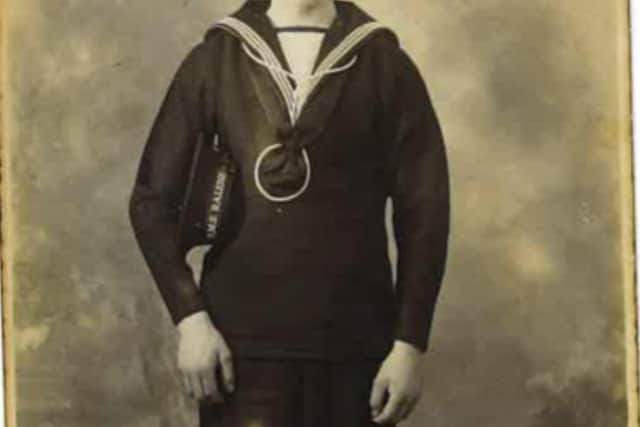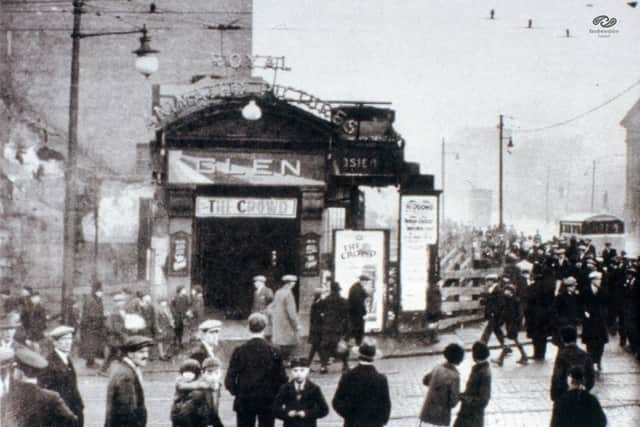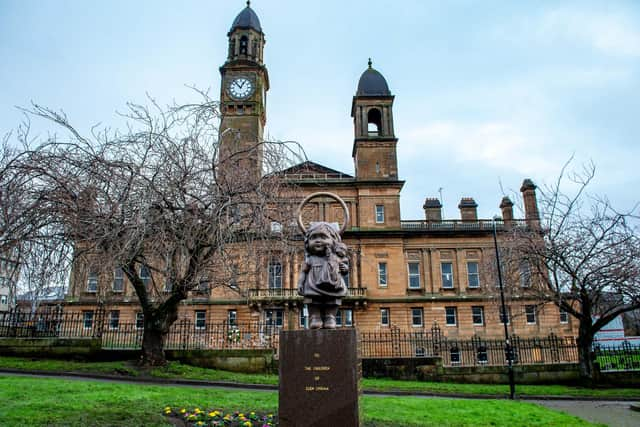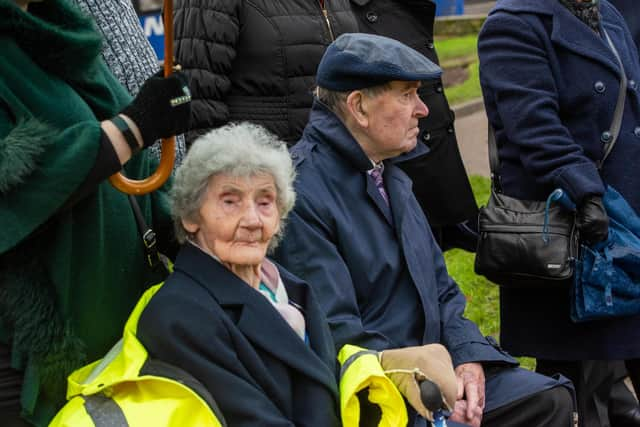Survivor of cinema tragedy aged 99 remembers darkest day at Scottish matinee
Robert Pope, then aged seven, remembered screaming and shouting in the Glen Cinema in Paisley, where around 600 children watched a matinee on Hogmanay afternoon in 1929, but that was normal for a Western, he thought.
But as Pope sunk down into his seat waiting for the film to come back on, one of Scotland’s worst human tragedies started to unfold after a smouldering reel of nitrocellulose film billowed smoke into the packed auditorium.
Someone may, or may not, have shouted fire.


Advertisement
Hide AdAdvertisement
Hide AdPanic unleashed in the rows and children rushed to get out the side doors, only to find the exits covered by locked gates. Children piled up at the exits, unable to move.
A total of 71 children died that day, among them William Spiers, a friend of Pope who sat next to him that afternoon, but who disappeared in the chaos of he crush.
He later died in the Royal Alexandra, where mothers gathered in dark desperation of news, some of them fainting as they waited.
Pope said: "There were eight of us who met on the Friday night to talk about what we would be doing on the Saturday. We wanted to see if we could get enough money together to get to the matinee because the mothers would be cleaning the houses for New Year.


"In the morning we went round the houses getting jelly jars to take back to the shop. We got a ha’penny for every one.
“We sat in the centre of the cinema, eight of us all sitting in a line, all the pals. We didn’t have enough money for ice cream that day.
“I remember it was a cowboy film and as he came over the hill at the top, the film broke down.
“That happened quite often during a film. I didn’t realise anything was wrong. I waited for the cowboy to come on again, riding his white horse.”


Advertisement
Hide AdAdvertisement
Hide AdThen, sometime later, a policeman came and tapped him on the shoulder
Pope, who will be 100 in April, said: “He asked me what I was doing, I said I was waiting for the film to restart. The policeman told me to get back to my mum and go home and tell her I was OK.
“People were screaming and shouting, but that was normal in a cowboy film. I didn’t realise what was happening.”


Pope said it felt as if a guardian angel had protected him that afternoon and he managed to get to the main entrance and walk out the front door.
There, scenes of “madness” came into view as adults swarmed around the cinema trying to help. Windows were smashed to create ways out. The boy saw bodies being lifted on to carts.
“The whole town seemed to stop and come together to help the children,” Pope said.
Pope lived five minutes from the cinema and headed home, his mother coming to find him after hearing about a fire at the cinema. There was no fire, but the fear of one led to one of the darkest days in the town’s history.
The tragedy led to legislation to make cinemas safer for children and adults, with the Cinematograph Act of 1909 bringing in more exits and escape doors fitted with outward opening push bars.
Advertisement
Hide AdAdvertisement
Hide Ad"For days, months and years that followed, the town was a sad place for a long time,” said Pope, who went on to serve in the Royal Navy.
“It was talked about for a little while, but as children we just got on with our lives.”
Paisley started to collectively remember those who were there that day around 15 years ago, with a memorial service now held every year. Pope’s own children were not aware their father had been at the cinema that day until relatively recently.
Last week, a memorial to the disaster and its victims was unveiled in the town’s Dunn Square, across the road from the site of the former cinema in Dyer’s Wynd. Pope was among those who attended, along with another survivor Emily Brown.
“For a long time, what happened was not talked about,” Pope said.
"Then we started to meet on Hogmanay at the Cenotaph to remember those who passed.
"It’s sad that we have to remember the children, but I’m glad there is now a memorial for them. We can pay our respects any time.”
A message from the Editor:Thank you for reading this article. We're more reliant on your support than ever as the shift in consumer habits brought about by Coronavirus impacts our advertisers.
If you haven't already, please consider supporting our trusted, fact-checked journalism by taking out a digital subscription.
Comments
Want to join the conversation? Please or to comment on this article.
